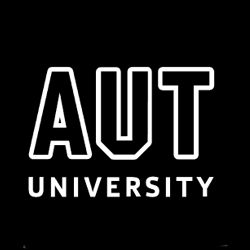
The effectiveness of providing second language (L2) writers with on-line written corrective feedback
Status
Completed: 3 April 2010
Project Details
A project, completed in 2010, to investigate the extent to which second language writers at a pre-degree level benefit from written corrective feedback on their writing when delivered on-line. A collaboration of AUT University and University of Auckland.
Aims:
The main aims of the project were to:
- investigate the value of written corrective feedback when learners write new texts over time
- investigate the effectiveness of providing feedback to learners on their two most frequent error categories (singular and plural nouns and subject-verb agreement)
- examine the effectiveness of two different types of feedback and the level of retention over time.
Methodology:
The project methodology involved:
- pre-test, post-test and delayed post-test design using 30-minute writing tasks on-line
- two different types of feedback (direct error correction and coded meta-linguistic feedback) provided to the two groups of students
- analysis of the data.
Team

Professor John Bitchener
Project Leader
AUT University
Dr Martin East
The University of Auckland
Helen Cartner
AUT UniversityStatus
Funding
$9,966.00 (excl GST)
Key Findings
The key findings from the project included:
- Written corrective feedback is effective in helping advanced L2 learners/writers improve the accuracy with which they use two relatively simple, partially acquired linguistic forms/structures – singular/plural nouns and subject-verb agreement. The study also shows that these benefits are maintained over time – in this case, over a 6-week period.
- These findings add to the growing evidence in support of the effectiveness of written corrective feedback for treating partially acquired rule-based discrete linguistic forms/structures.
- The study shows that written corrective feedback can be effectively provided on-line.
- Targeting two linguistic error categories rather than many categories and loosely defined categories is again shown to be an effective way of treating linguistic error difficulties and helping writers retain the level of mastery and control demonstrated immediately after feedback has been provided.
- The findings of the study suggest little difference in effect between direct error correction and coded meta-linguistic feedback. The only difference between the two was found in their effect on subject-verb agreement. It may be that some forms/structures such as this are more effectively treated when the nature/cause of the error is revealed. On the other hand, in the case of singular/plural nouns, error correction was sufficient.
Key Recommendations
The key recommendations from the project suggested that further research is needed in the following areas:
Comparing on-line and off-line provision | The study shows that written corrective feedback can be effectively provided on-line but further research, comparing on-line and off-line provision within a single study design, would be required to find out if one medium is more effective than the other.
Studying writers at other proficiency levels | The findings of this study are applicable to advanced proficiency L2 writers. Further research would be required to find out if the forms/structures targeted in this study can also be successfully treated with writers at other proficiency levels.
Helpfulness of the two types of feedback | The project found there was a difference in effect between the two types of feedback which indicates that further research should be done to explore the extent to which explanation (i.e. nature/cause of error) is more helpful than unexplained correction.
A research report prepared by John Bitchener, Martin East and Helen Cartner.
(PDF, 329 KB, 12-pages).
- 6 April 2010